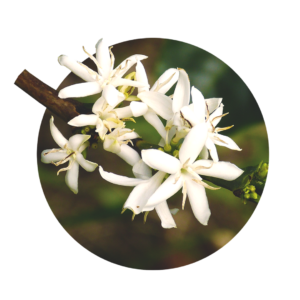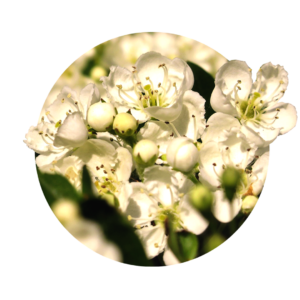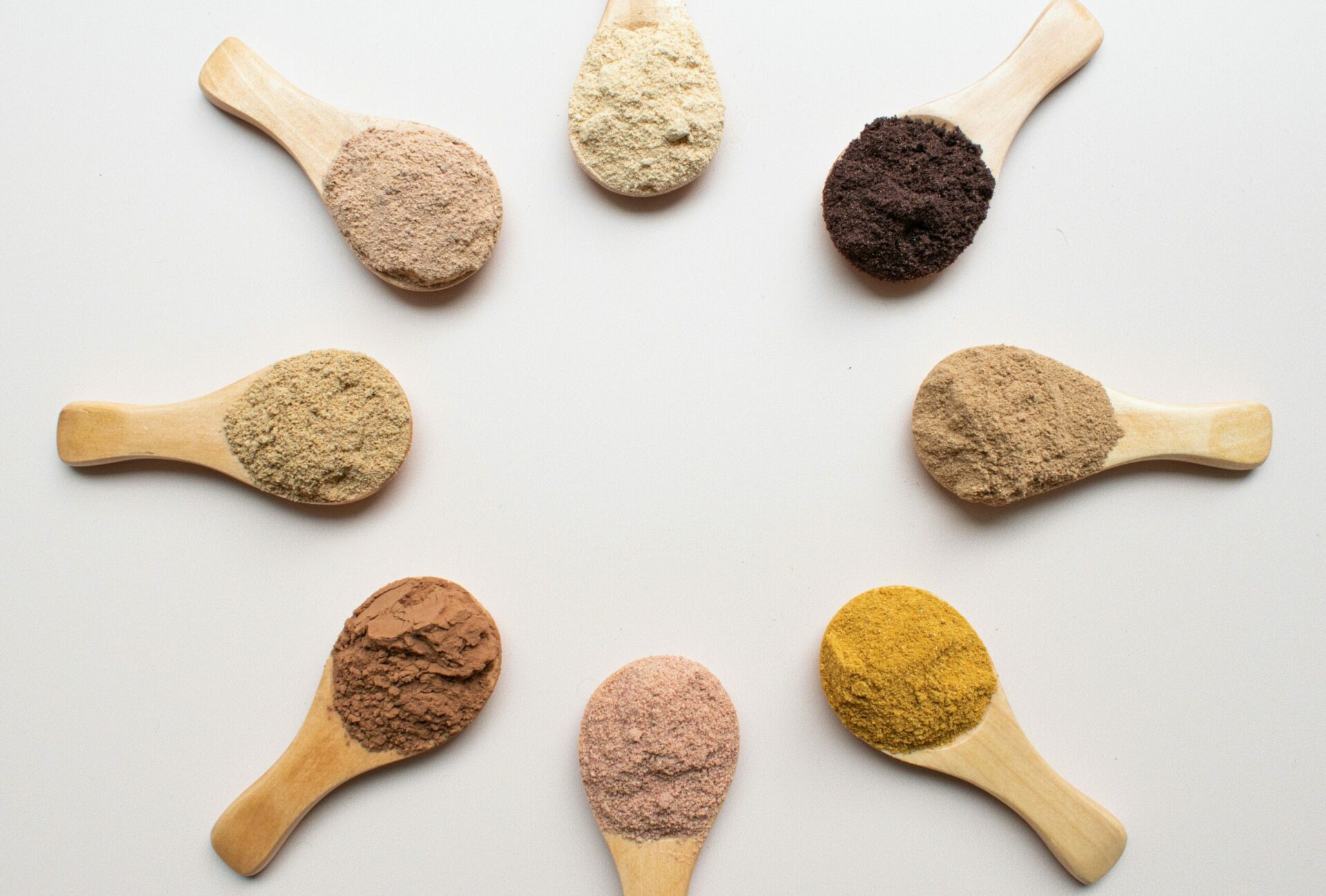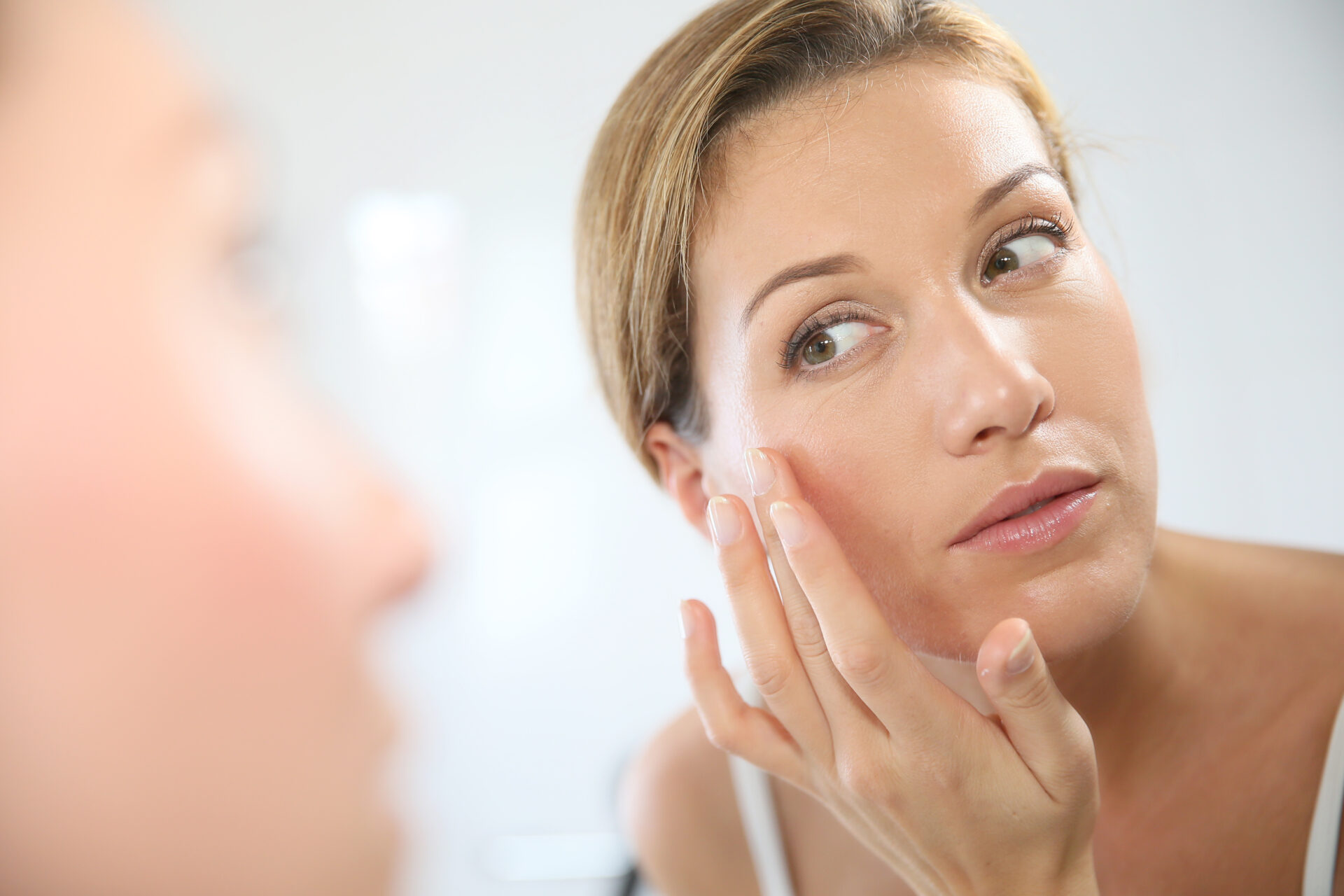With natural methods, such as the individual spagyric mixtures from Zimply Natural, your complaints can be relieved naturally and sustainably.
Table of contents
- What does the thyroid gland do and what is hypothyroidism?
- These are the possible causes of hypothyroidism
- Tiredness and weight gain - symptoms of hypothyroidism
- How your doctor diagnoses hypothyroidism
- Traditional treatment of hypothyroidism
- Natural home remedies to combat hypothyroidism
- These medicinal plants can support you with an underactive thyroid
- Zimply Natural - Naturally against hypothyroidism
- FAQ: Questions and answers about hypothyroidism
What does the thyroid gland do and what is hypothyroidism?
The thyroid gland (medical term: thyroid gland) is a vital, small endocrine gland in the front of the neck below the larynx that produces vital thyroid hormones. It is essential for the body's metabolism, growth and maturation and is involved in the regulation of various bodily functions. It constantly releases a certain amount of thyroid hormones into the blood. As soon as the metabolism requires more energy, for example in cold weather, during growth or during pregnancy, the thyroid gland boosts its hormone production. If the thyroid gland no longer functions properly, a general distinction is made between hypothyroidism and hyperthyroidism. Underactive thyroid or hypothyroidism is the term used by doctors to describe insufficient hormone production by the thyroid gland. Due to the hormone deficiency, all metabolic processes in the body are slowed down and performance is reduced. Hypothyroidism is one of the most common metabolic diseases and affects women more often than men.
These are the possible causes of hypothyroidism
Primary hypothyroidism
Hypothyroidism can be caused by both congenital and acquired factors. One congenital cause is athyroidism, in which children are born without a thyroid gland. There is also thyroid dysplasia, in which the thyroid gland is malformed. These two conditions result in the thyroid gland not being able to produce sufficient hormones. The most common of the acquired causes is Hashimoto's thyroiditisan autoimmune disease in which the immune system attacks the thyroid gland and disrupts its function. Iodine deficiency can also have an impact, as iodine is essential for the production of thyroid hormones. In some cases, treatments such as radioiodine therapy or thyroid surgery can also cause hypothyroidism. Especially if a lot of thyroid tissue is removed or damaged.
Secondary hypothyroidism
In secondary hypothyroidism, the cause of the hypothyroidism lies in the pituitary gland. This produces too little TSH, the hormone that stimulates the thyroid to produce hormones. In this case, physicians speak of pituitary insufficiency. In contrast to primary hypothyroidism, in the secondary form not only the T3/T4 blood values but also the TSH value are elevated.
Tertiary hypothyroidism
Far rarer is tertiary hypothyroidism. This is caused by the hypothalamus. This in turn produces too little of the hormone TRH, which ultimately regulates thyroid hormone production via the pituitary gland.
Tiredness and weight gain - symptoms of hypothyroidism
As a rule, hypothyroidism develops gradually in adulthood. At first, there are few or no symptoms. Usually, the symptoms only become noticeable when the hypothyroidism becomes more severe. The following symptoms do not all have to occur and can also vary in severity.
- Extreme fatigue, excessively fast exhaustion
- Weight gain
- Depressive mood
- Increased susceptibility to infections
- Cool, dry skin
- Concentration disorders
- Lack of drive
- Sensitivity to cold
- Loss of appetite
- Constipation
- Puffy face, swollen tongue and eye areas
- Dull hair, hair loss
- Headache & Migraine
- Disinterest
- cycle disturbances, reduced fertility, or Menstrual cramps
How your doctor diagnoses hypothyroidism
Hypothyroidism can be detected or ruled out relatively quickly by determining basal thyroid levels (T4, T3, TSH) in the blood.
The determination of special thyroid antibodies in the blood, an ultrasound examination of the thyroid gland and possibly also a scintigram are further examinations to determine the cause of hypothyroidism.
Traditional treatment of hypothyroidism
The hormone deficiency that occurs with hypothyroidism can be compensated for by hormone tablets. Patients usually take these for the rest of their lives. If the dosage is correct, neither the quality of life nor the life expectancy of the patients is restricted. Doctors also refer to this as replacement or substitution therapy.
The preferred drug for the treatment of hypothyroidism is L-thyroxine. It is a synthetic hormone that acts like the natural thyroid hormone thyroxine (T4). In the body, it is partially converted into the thyroid hormone T3.

Natural home remedies to combat hypothyroidism

Our first tip for naturally combating hypothyroidism is an optimal diet. However, it must be said in advance that the following measures are only a support and not a supplement to medical treatment. An untreated hypothyroidism can have serious consequences. In terms of nutrition, you should make sure that you consume enough iodine. This is essential for the production of thyroid hormones. Foods such as sea fish, algae and iodized salt are suitable for this. Selenium also plays an important role in thyroid function. Nuts, especially Brazil nuts, are good sources of selenium and can help to support your thyroid. You may also benefit from certain herbs and spices. Ashwagandha is an adaptogenic herb and can help support thyroid function and better prepare the body for stress. Guggul is a resin extracted from the mukul myrrh tree and is used in Ayurvedic medicine. Here it is used to improve thyroid function.
These medicinal plants can support you with an underactive thyroid
Coffea arabica can provide support for hypothyroidism, especially when symptoms include stress, anxiety or sleep disturbances. The relaxing and calming effects of this medicinal plant in low, homeopathic doses can help to alleviate these stress-related symptoms. This is particularly helpful as stress and lack of sleep can further disrupt hormonal balance. This could therefore have a counterproductive effect on an existing hypothyroidism.
Hawthorn can be particularly helpful for cardiovascular problems, which include hypothyroid heart disease such as heart failure and elevated cholesterol levels. By improving heart function and blood flow, hawthorn can help to reduce the strain on the heart. This can be caused by the slowed metabolism associated with hypothyroidism.
The Sea sponge is one of the most important remedies for the treatment of thyroid problems. The iodine compounds it contains provide the body with the basic building blocks it needs to produce thyroid hormones. Sea sponge is used to treat both hypothyroidism and hyperthyroidism. Disease patterns such as Graves' disease are part of its spectrum.
Rosemary is particularly valued in naturopathy for its stimulating and antioxidant properties. In cases of hypothyroidism, rosemary can help to reduce fatigue and reduced mental clarity through its invigorating effects. Its antioxidant properties can also reduce oxidative stress, which is often elevated in thyroid disorders. Rosemary also offers anti-inflammatory benefits that may be useful for thyroid conditions such as Hashimoto's thyroiditis.
Zimply Natural - Your natural booster against presenteeism and for more steadfastness
With Zimply Natural, we are the antidote to painkillers, sleeping pills, and standard medications. We are your medicine! For our mixtures we use the centuries-old natural healing method of spagyric back. The Spagyric combines the herbal active ingredients and phytotherapeutic elements of the HealingplantsThe mineral salt qualities, as well as the subtle information of the medicinal plants and the energetic potential of the Bach flowers.
With natural methods, such as the individual spagyric mixtures from Zimply Natural, your complaints can be relieved naturally and sustainably.
FAQ: Questions and answers about hypothyroidism
Can diet influence hypothyroidism?
Yes, diet plays an important role in thyroid health, especially by providing iodine, selenium, iron and zinc. Iodine is essential for the production of the thyroid hormones T4 and T3. A deficiency can therefore cause hypothyroidism. Good sources of iodine are seafood, seaweed, dairy products and iodized salt. Selenium supports the conversion of T4 into the more active T3. It also protects the thyroid gland from oxidative stress, with Brazil nuts, fish, eggs and sunflower seeds being rich in selenium. Iron and zinc are also important for thyroid hormone production. You can find iron in red meat, pulses and fortified cereal products. Zinc is found in meat, shellfish, dairy products and wholegrain products.
What is Hashimoto's thyroiditis?
Hashimoto's thyroiditis, also known as chronic lymphocytic thyroiditis, is an autoimmune disease that is considered the most common cause of hypothyroidism. In this disease, the immune system mistakenly attacks the thyroid cells, leading to inflammation of the thyroid gland. This can affect the thyroid's ability to produce enough hormones, leading to the symptoms of hypothyroidism. The exact cause of Hashimoto's is unknown, but it is thought to be a combination of genetic factors and environmental triggers such as infections. Symptoms usually include fatigue, weight gain, sensitivity to cold, hair loss, dry skin and a slowing of the heart rate.
What is the difference between hypothyroidism and hyperthyroidism?
The difference between an underactive thyroid gland (hypothyroidism) and an overactive thyroid gland (hyperthyroidism) lies in the hormone production of the thyroid gland and its effect on the body. In hypothyroidism, the thyroid gland does not produce enough hormones, which leads to symptoms such as tiredness, weight gain, cold intolerance and dry skin. Common causes of this are autoimmune diseases such as Hashimoto's thyroiditis, iodine deficiency or the effects of certain medications. In contrast, the thyroid gland produces too many hormones in hyperthyroidism. This speeds up the metabolism and leads to weight loss, nervousness, increased heart rate, sweating, tremors and heat intolerance. Hyperthyroidism can be caused by Graves' disease, benign thyroid adenomas or thyroid inflammation.













